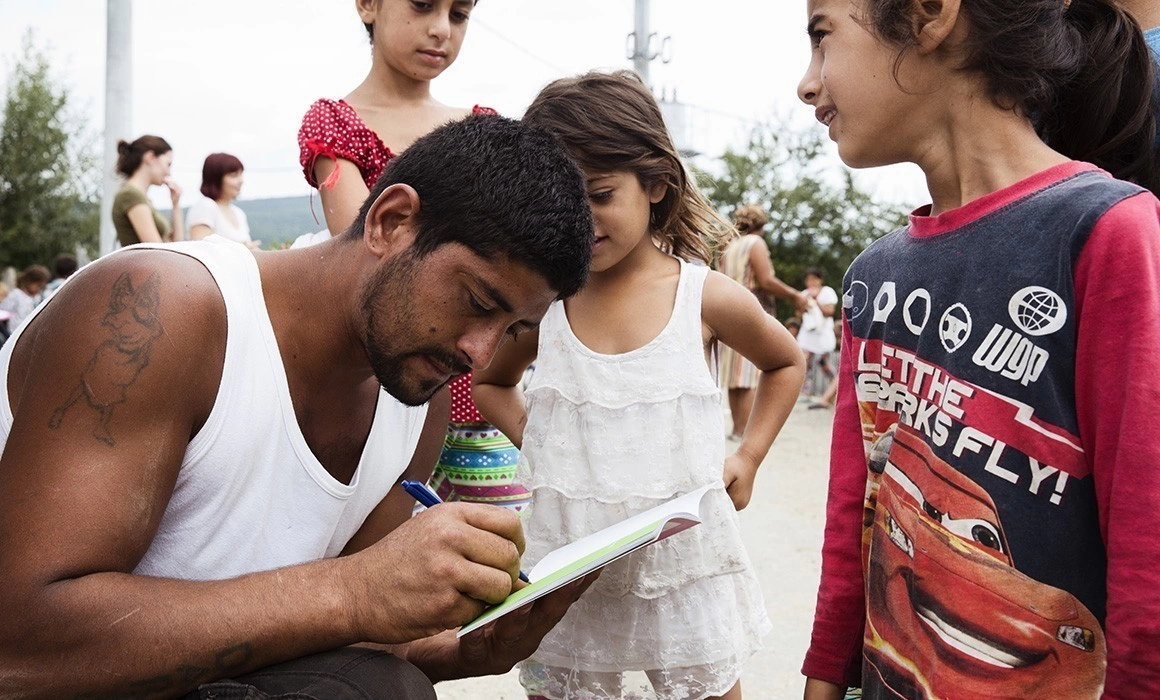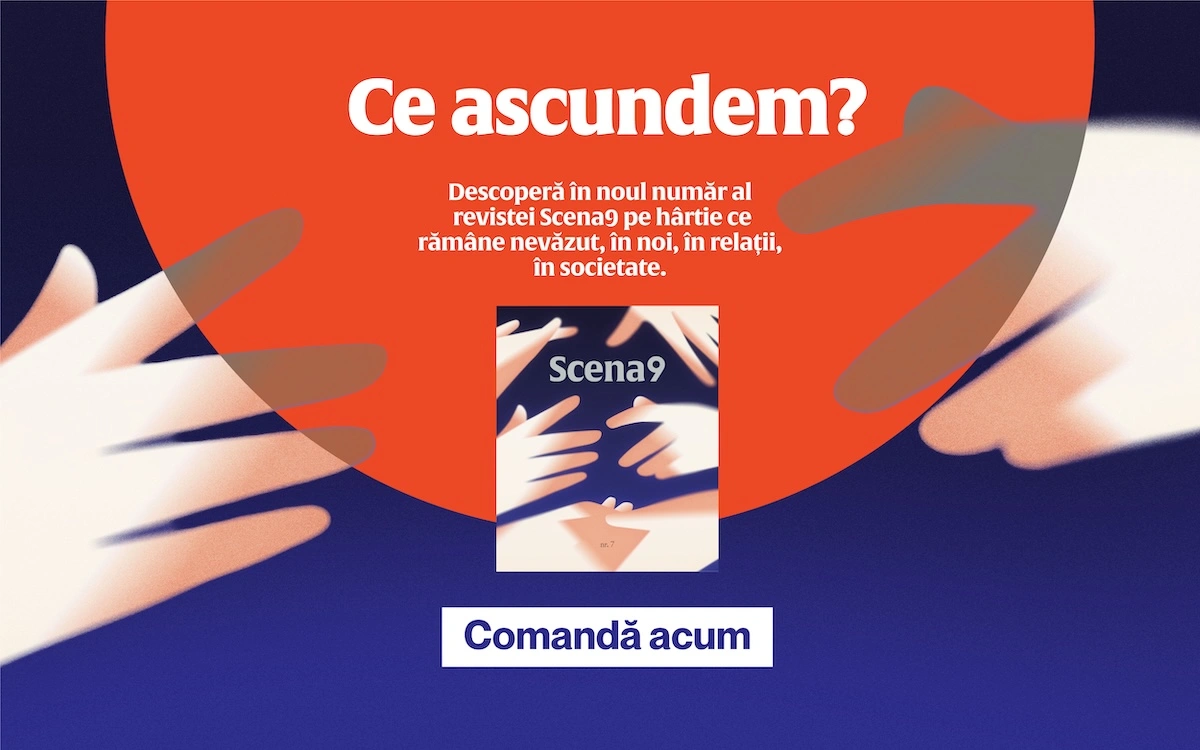The first days of autumn. I scroll through my Facebook feed and see the Indian summers of the people in my list – vacations, families, concerts abroad, downshifting and cool independent projects I didn’t even have time to like. I have that “back to school” feeling in the pit of my stomach and a photo of children as my Facebook cover photo. We were all sitting on the floor, inside the Horodnicu de Sus kindergarten in Suceava, reading from a big book. This was my summer – for two months I read to poor children and it was probably the coolest and the most useful thing that consumed me this year. The adventure started at the end of June and I don’t think it will ever end.
“Alright, you can come, but it’s not going to work!”
“There’s a complete lack of interest, madam! They don’t care!”
“Is the principal coming to our meeting? We invited both him and the mayor!”
“He’s on vacation!”
“The parents are uneducated! There’s no way they’ll get it.”
“A diploma is worthless nowadays. Why do they need to go to school?”
“Children would love to come, but the parents won’t bring them.”
“Oh, it’s so nice that you’re helping us with the kindergarten. We keep telling them, but it’s all in vain! They don’t even hear us anymore. They say yes, we’ll do it, but then they vanish into thin air!”
“Come, they’re really happy when someone comes for them.”
“You won’t find them there. They’re out working or… sleeping.”
“What do you give them? A book?! Oh, come on!”
“And fruit? Well, that’s more like it.”
“Listen, don’t tell us how to do our job. But come and see for yourselves!”
“Marta, who’s at the kindergarten? Let these ladies in, they want to do that thing with the kids! They play or whatever it is they’re doing! They read, you hear that? Yeah? Alright! Good luck!”
“Man, what are we doing?! Is it even enough?”
These are the voices you hear in your head when you go to some of Romania’s poorest villages with a reading caravan during the summer vacation - Caravana Fiecare Copil la Grădiniță (Every Child in Kindergarten Caravan), is filled to the brim with reading sessions, books, educational games for children, and information for parents.
What It’s All About
All the awareness and persuasion efforts went to the case of social tickets for kindergarten, a project that stirred up debates among Romania’s disadvantaged communities. Every Child in Kindergarten was the main project of the NGO I work for and after being active for 6 years in 45 poor communities, it has become a state-financed national program (law nr. 248/2015). The initial project doubled the number of poor children enrolled in kindergarten, and also increased their attendance and facilitated the transition between kindergarten and primary school. Encouraged by the success of the intervention, easily verified by OvidiuRo, last fall, the members of the Parliament decided that the financial educational incentive, the kindergarten social ticket worth 50 lei a month, would go to all children coming from disadvantaged families whose monthly income was less than 284 lei per family member. According to the Ministry of Labor, starting February 15, around 110,000 children would benefit from the incentive.
We had 6,200 books to give away and two months to find as many as we could of the 50,000 poor children who had been unidentified and unenrolled in any kindergarten following the first semester of the national program. The children who don’t appear on any national lists, any ministries, or public authorities lists. We still had to win over the children’s parents and besides, we had to prepare around 100 city halls teams and as many schools in 15 counties to implement the law into the new school year.
We made reading a priority – as a means of attracting preschoolers to education. We prepared for meaningful reading sessions – we got big, beautiful books, recommended by alternative education experts – and the way we thought out the activities was meant to transform reading into a real dialog between us and the children, with questions and answers, yelps and interjections. The concept of Reading Aloud has barely made it to fancier kindergartens and schools in the country, but it can freely promoted with the help of the initiative Citim împreună România (Reading together Romania).
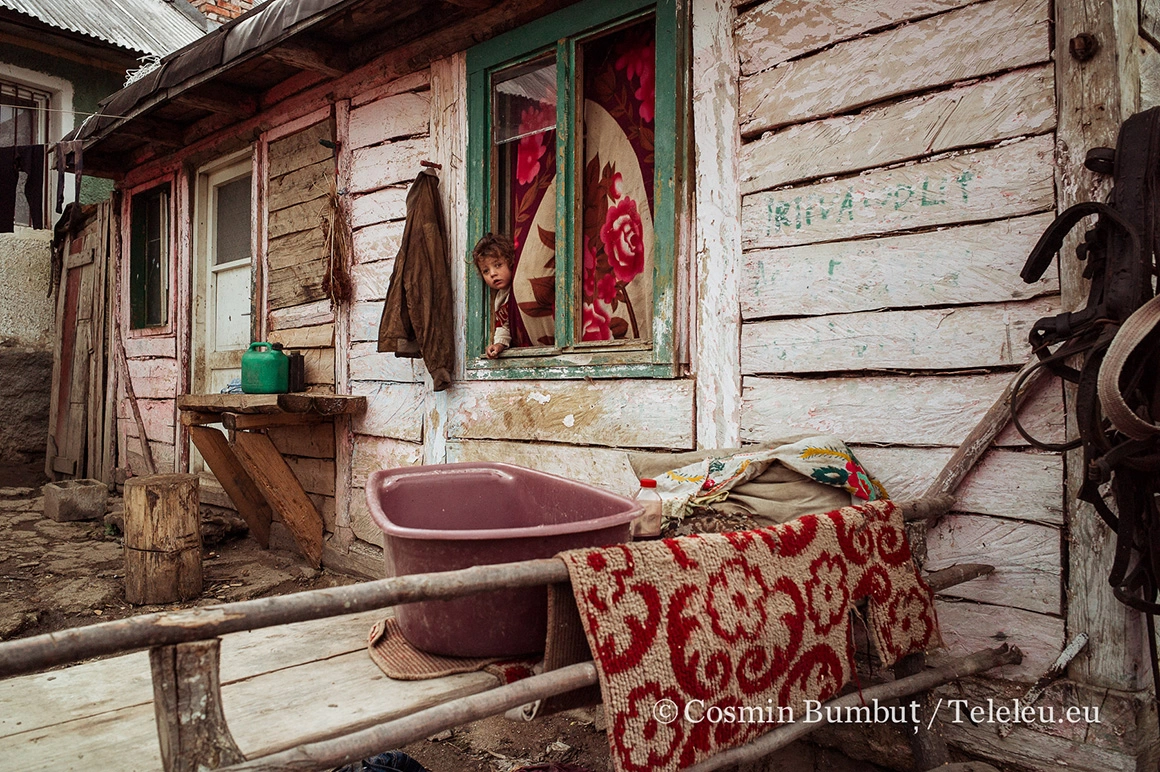
Why We Need It
What came over you, with the kindergarten and all? This is what people ask; people for whom kindergarten is either optional (you can teach the kid at home) or implicit. You keep telling people about this and that study, out of all those many studies that proved the importance of early education, especially for poor children. And you tell them that in Romania, 2 out of 3 children don’t have access to education because of poverty. James Hackman, professor at the University of Chicago and researcher for Centre for the Economics of Human Development (a Nobel laureate, who dedicated his life’s work to the idea of investing into human capital) says that if you bring educational programs into the first 5 years of a child’s life, you have the biggest chance to derail the inherited cycle of poverty-dropping out of school-social case/criminal. And that this investment in early education, has the highest rate of social recovery.
Why would someone promote access to early quality education for poor children? The answer should be simple in a country where 40% of its people live in poverty and with the risk of being socially excluded; where the rate of early school abandonment is the highest ever since our country became part of EU (18,1% in 2012); a country where 42% of its people are functional illiterates and 70% of people don’t read a single book a year (according to EUROSTAT, 2011). What is there left to do if you don’t laugh at the vaxpopuli type of movies with people who don’t know what planet or country, they’re living on. #Whatcanyoudo? #Youcantdomuch! FYI, we’re in this together!
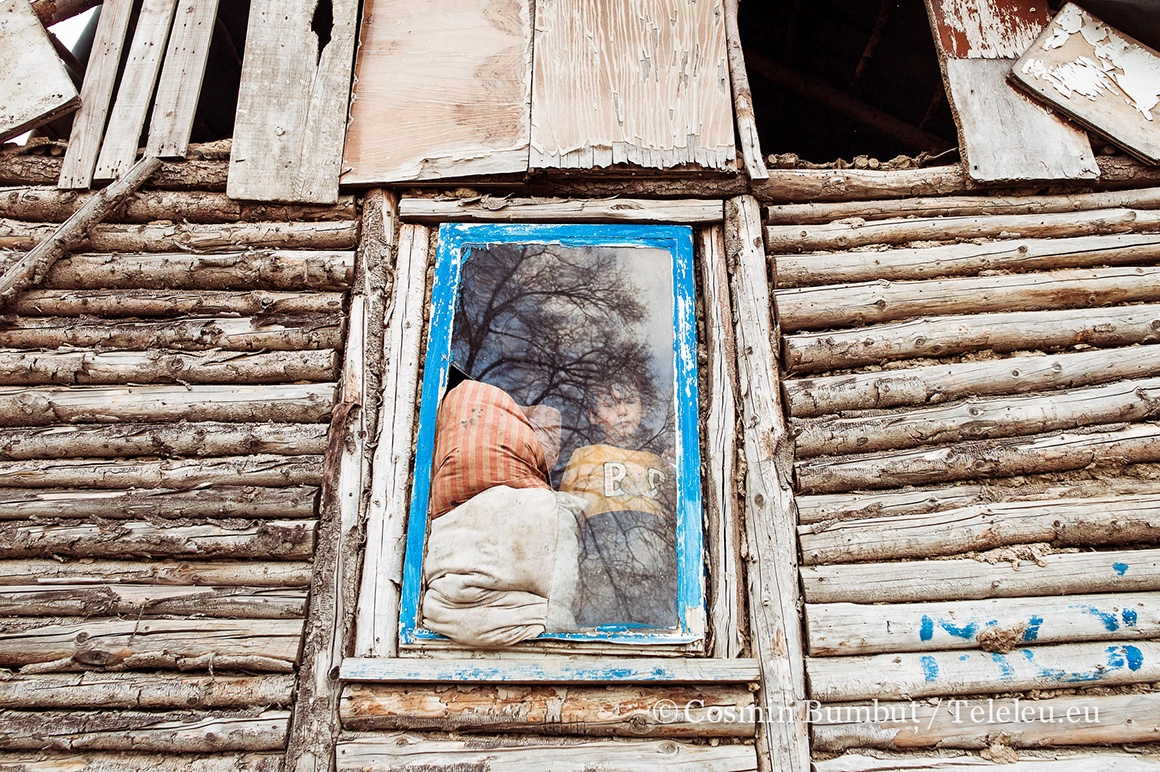
“Man, what are we doing?! Is it even enough?”
The problem is… the problem is so big that it leads to a generalized sense of resignation, even among those who should be in charge of finding solutions. How much good can you do with a mere reading session? You look in your friends’ eyes and you see that beyond their admiration and curiosity for your summer plans, there lies a type of mistrust. They seem overly cautious and it can nip in the bud any civic or charitable trial in Romania’s ocean of dysfunction. Romania, a cool, but hard-headed country.
You read about the opinions of experts or those who have been doing this around the world. It seems that reading really is this “magical wand that can pluck a person out of poverty” (Miranda McKearney, co-founder of The Reading Agency, UK). Remember that 70% of Romanians don’t even read one book a year. It’s no surprise we’ve been poor for so long.
Apparently, the question isn’t why should you read or why is it worth promoting reading to the disadvantaged people, but how to do all this. Around 2002, OECD reported a direct correlation between the level of the reading done and people’s achievements, suggesting that getting people interested in reading would be “one of the most effective means to produce a social change”, a type of “get out of jail free card, when you’ve had a rough start in life”.
This simple act of reading, if done at an early age, has such a large impact on a child’s cognitive development that it reflects positively even in their exact science performances, such as mathematics. They say that reading is more important than the academic achievements of a young child, and even more important than the socioeconomic environment they grow up in.
How’s that? Poverty, especially one that runs for several generations, sucks bigtime and it makes it hard for one to make rational decisions, even the simplest and most logical ones. How can you not send your kid to school? What do you mean, you forgot to look for a job? How could have you forgotten to pay the bills, you can’t afford the penalties? This happens because the constant lack of money and the stress in one’s life limit the cognitive capacity, or the “band length”, as the authors of Science put it, and it can even reduce the IQ by 13 points. Remember, even those people who can’t complain about poverty, have a reduced cognitive capacity in the days before the paycheck or during the times when the income doesn’t come regularly or isn’t sufficient. This affects the decision-making process, and not just the ones that happen when you go shopping on an empty stomach, when you inevitably buy more than you need (via The Atlantic).
The bad decisions, the ones that to the middle class seem so irrational and self-destructive, are actually the most logical answers that the brain of a poor person can provide. That same brain that is being continuously faced with chaos and lack of perspective.
Alright, so these studies remove responsibility from some of the people. They excuse them for some of the wrong decisions that they make when they’re severely poor, which means that it’s wrong to believe they are at fault for their condition, but the studies also offer no solution. How can this vicious cycle of poverty and resignation end?
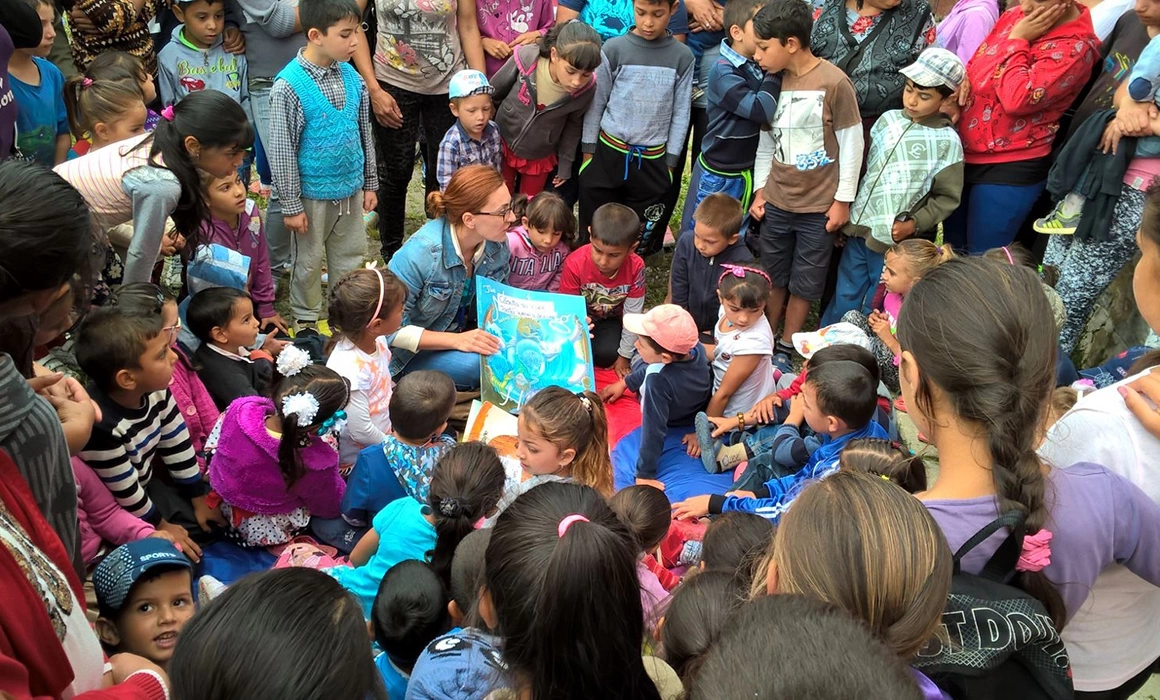
There are a couple of points. The first point is the existence of public policies that ensure and stimulate the access to education of its most disadvantaged citizens. These public policies would need to have clear objectives, that can be reached and measured and that would have immediate an effect in the lives of people. To give people confidence that the downward spiral can be reversed. To lead to structure and a certain degree of cohesion in the community.
This brings us to our second point that is just as important as the first: how do you make poor people believe in their own power to lift themselves up from poverty? How do you introduce the desire of self-improvement? How do you do this as early, as convincing and as sustainable as possible? Because this is what we need.
In our reading caravan we had planned to reach anonymous children, the ones that nobody wait for at the kindergarten, the way they do with the ones who do well in school, who wear nice clothes and look presentable. We knew that for this to happen, we needed to go to each poor community and get the children right off the streets, to knock on doors and convince the parents to let them come.
A Caravan of Reading between the Lines
On July 4, the Every Child in Kindergarten Caravan kicked off its journey, with myself and two teams of four people. The caravan was offering reading, educational games for kids, and information for parents. Our first stops were Brașov (yes, there’s poverty there, too) and Vaslui. There was a huge fuss, the pleasure of reading, and lots of kindergarten children, recruited from the poor parts of the community. The same community we’ve been warned about by mayors, social workers, plain people, or even the ones that live there themselves. That community, “the fringes”, “where the gypsies live”, “the colored ones”, “high up, there”.
The places we planned to visit had been carefully chosen, after days of disputes and contradictions. The truth is that we didn’t even expect to decide that easily which village was poorer and where we would find the poorest children that we could lure towards education. After all, the authorities didn’t really feel like sharing their database with us, so we were risking comparing apples and oranges, in various counties, while trying to search for invisible children. We were looking for children that hadn’t been reached before, the most marginalized poor children, the preschoolers that not even the Ministry of Education knew about. All they know is what is being reported through the integrated information system for Romanian education (in Romanian SIIIR, what a noble acronym!).
And the children that nobody hears about and nobody cares for, would teach us some incredible lessons, and would show us that it was worth finding them.
The first lesson we learnt was that the most important chance you could give a marginalized child is to call them by their name, to confirm their existence. You could be the first person in their life who does this, aside from their parents, if that! It could be the highest form of support they get. I had no idea that even our short interaction would matter. But if you give them something to do, if you make them part of your little “magic number”, then you manage to get them out of the furthest corner of the room, where they sit there by themselves, out of habit.
Then, you find out soon enough what a wonderful potential kids have – all kids, no matter where they are born. You expect, somehow, that those who don’t have much to play with are more eager to do things, to interact. But what you don’t expect is for them to be so happy to see a coloring book, or that you’ve made them laugh. They’re smitten when you write their name on the book you give them, or on a simple piece of paper. They follow every single move of your pen, they can’t believe that it’s their name and their book. And the older ones absolutely want a book and they want you to let them try to write their own names on it. They come back to you, one at a time, to read to them again, just from their book. The same book, simply because it starts with “this book is for Alex/Tita/Orlando/Antonia/Gigi/Maria”.
The kids I read to this summer are the type of children who don’t have a single book in their homes. And they see such few words printed around them and chances are they hear less than a total of 13 million words until the age of 4. As a comparison, a child born in a middle class family hears around 30 million more words. This is an estimate for preschoolers in the US, but I don’t think things differ too much, here. Another study mentioned the differences between three year old children of intellectual parents and those of socially assisted ones, at a vocabulary level (1,100 vs 500 words) and the IQ (117 vs 79). (Hart and Risley, Meaningful Differences via Jim Trelease, The Read-Aloud Handbook, p. 16)
Back to us, now. Everywhere in Romania, the children from the poorest population segments start school without any basic notions (such as the ability to identify ten letters of the alphabet, colors or the first 10 numbers). They don’t have any books in their homes, and poor parents aren’t even aware of how important it is to talk to their own children, much less read to them.
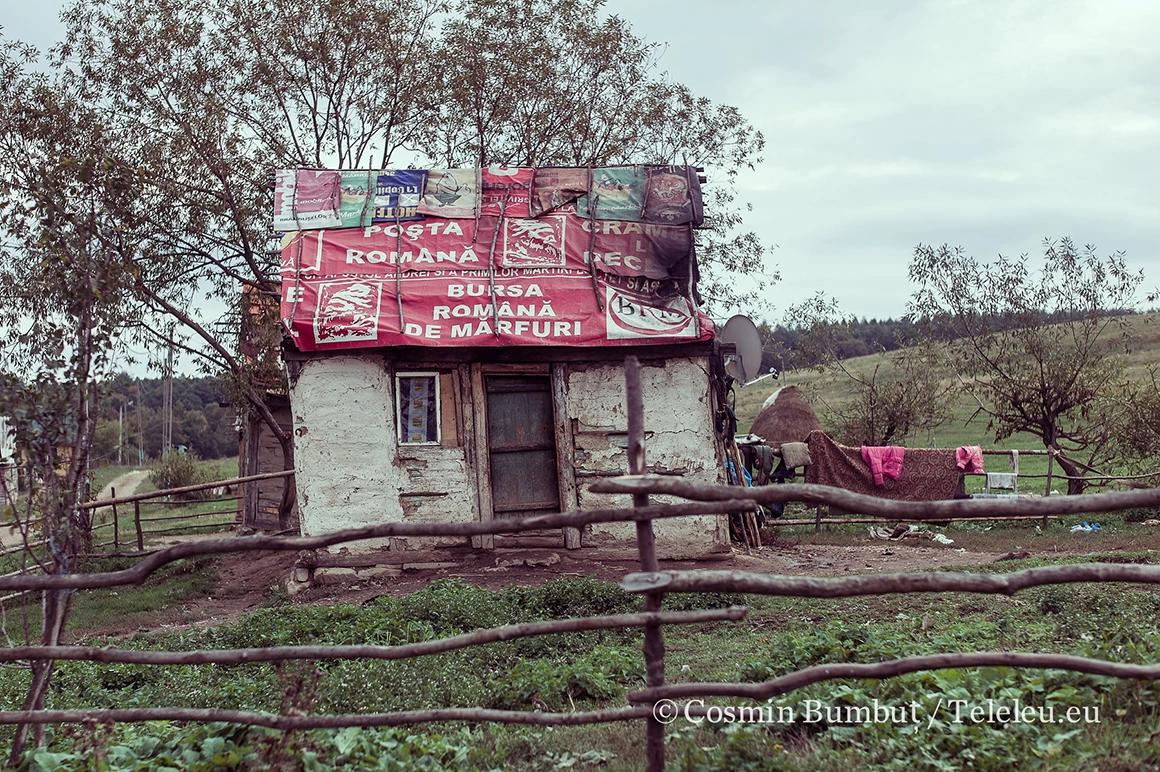
In 40% of Romanian households – which is exactly the percentage of Romanian poor people – you will find around 0 to 10 books. More than a third of these people probably don’t own one book in their homes. And when I say books, I’m not being fancy, I mean any printed material. Political flyers and PVC banners used for covering holes in the roof don’t count. This explains the timid fascination of the little ones with books, letters and words. It should be easy, shouldn’t it? One should have a few books there, or at least send your child to school or to the library.
But “38,1% of Romanian households have their toilets outside”. Out of around the 100 kindergartens that we visited, about 40 had the toilet inside and also had access to water (not running water, but at least one jug of water where the teacher would store water from the fountain, because the schools and kindergartens can’t afford auxiliary personnel).
We found a library in around 15 kindergartens out of the 100 that we visited – a few shelves filled with coloring books or old, unfriendly, stuffy books with titles unfit to keep up with the content that the TV or the internet is providing. We would shake our heads and write down in block letter, on our evaluation questionnaire, the need for appropriate educational materials.
One mayor of a county capital city wanted to visit a poor village and confessed that any book counts and that it was a book that made him who he is now. A book that is no longer fit for these times, a book he saved from destruction and brought home with him when the libraries gave up the Bolshevik literature, back when where they weren’t too many books around. “I still remember quotes from How the Steel Was Tempered by Nikolai Ostrovsky. Don’t laugh! You’re doing God’s work here! We’re never going to be enlightened if we don’t have books, if we don’t have words!”
The children loved it when we would read to them from big, colorful books. With less writing than they knew a book should have and less morals. The parents loved listening and watching their little ones answer; they loved to see them be daring and “getting friendly with the ladies who talk nicely”. Some parents couldn’t help themselves and they would answer before their kids had a chance. They would be happy when they would get the answer right, and would feel ashamed when we would tell them “Well done, mom!”. On the way there from Bucharest, I was thinking in horror about reading silly things from colorful books, while making squeaky sounds and fooling around. After all, I was not a child-person and I knew that I wasn’t very resilient in the cases of emotional assaults. I was nervous. Besides, I came to this NGO, not to ”save children”, but out of purely rational reasons. I assessed the potential impact of a cause with macro effects.
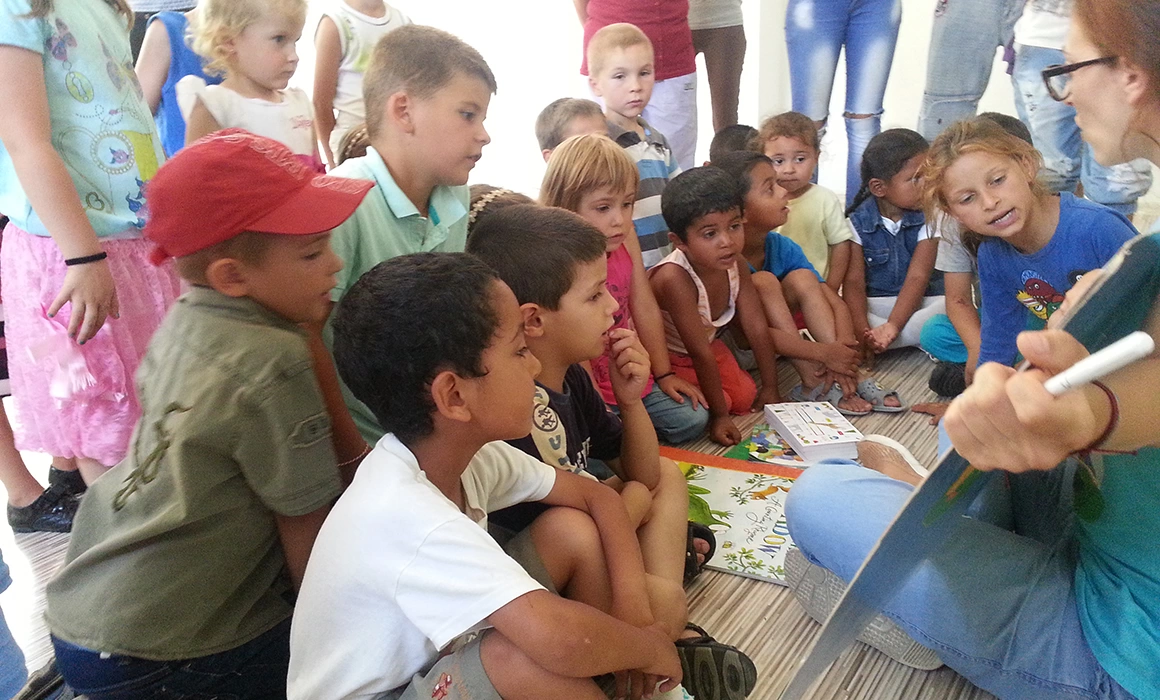
Those 4 hours of the day when I would read to the children were the nicest. I would fall in love with the conversations and the talks that would stem from a simple book about a red hen, or about a blue truck with lots of animal friends, or about the house where everybody was sleeping, except for a flea. I am absolutely convinced that I learned more than they did. For example, I learned not to err by asking them when they last went to the beach – most of them had only seen one on the TV – or about their birthdays (as few poor children celebrate it).
We had with us a big book and at the end of it, there was a spread of various fruits and vegetables, drawn almost in life-size – the protagonists were sitting around a table that had everything on it. The first time they saw it, almost all of them yelled – Meat! Pies! Wow! Their current meals are made up of potatoes, bread, chips and the colorful candy they receive as gifts from their parents when they do go to school or kindergarten. I was instantly reminded of the children from Ponorâta and their letters to Santa Claus. Absolutely all of them mentioned one thing in their food wish list: meat!
Writing this, I remember the idea of a professor from the US who used to ask his students to anonymously write what they would like their teachers to know about them. The answers became viral. Click here - What I wish my teacher knew. Well, when you read to the children from poor communities, you get the chance to learn more about then, than they are capable of telling and sometimes more than what the paper can handle. And it is important to listen until they tell you what they need to tell you.
And reading helps. During the summer holiday, nobody stays with them. Poor children forget what they learned in school or kindergarten. They don’t go to summer camps, they don’t have books or grownups to tell them a story and listen to them. Summer is when you work from dusk till dawn to earn money.
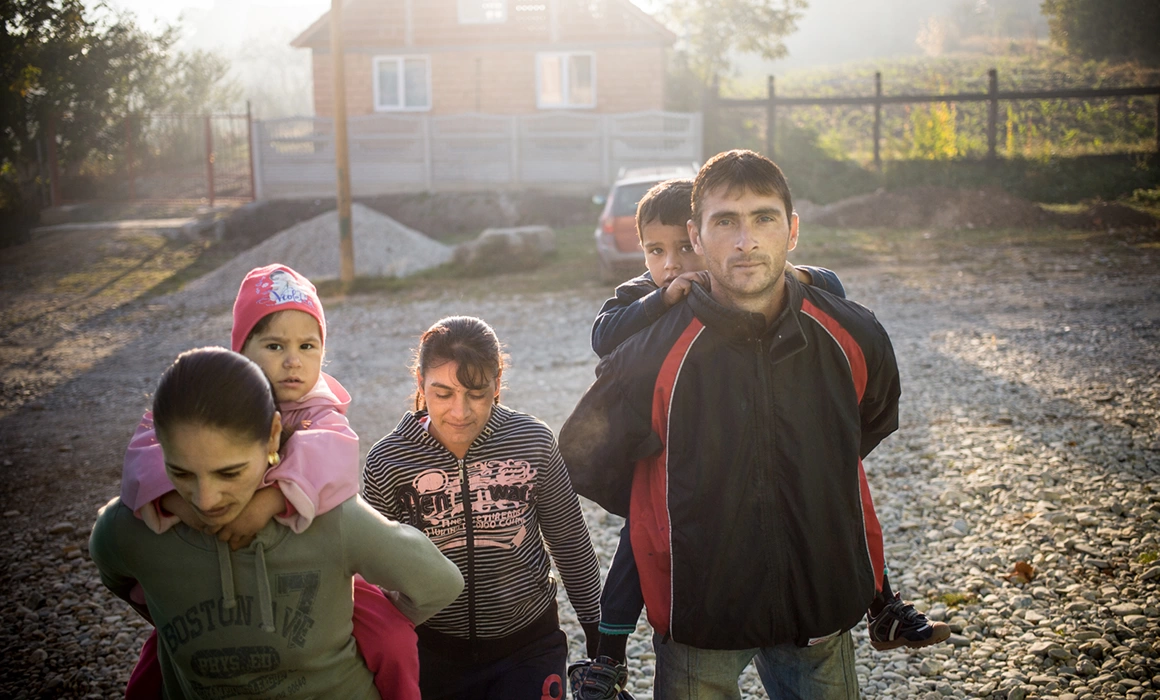
Even though we had been warned that nobody would come to our summer workshops and that they’re not interested in books, we managed to read for 5,700 children, not counting those we’ve read to in the villages, while sitting on the grass. Or the big brothers who came to ask for a book and showed us that they know how to write their names on it. We gave over 6,000 books and other thousands of educational materials to the kindergartens or out on the streets. We talked to around 3,100 parents, about their issues, but also about what we needed them to understand. We got together mayors, social workers, school mediators, principals, educators and teachers from 99 villages to try to get to the bottom of education and how to improve it. We’ve shared our conclusions with the county authorities, we’ve given them hard data on what it is needed and what is urgent. On the last slide of each PowerPoint we shared, there were photos of children hugging the books they had received as a gift. I couldn’t record the little boy who came over to me to thank me, nudged a bit by his embarrassed mom.
“What do you want to thank me for?”
“Because… I am happy I have a book!”
I recorded him in my head, so I can hit play every time that obsessive and somewhat healthy thought comes up: “Man, what are we doing?! Is it even enough?”
To be continued
Main photography: Dana van Leeuwen
Translated from the Romanian by Cristina Costea
